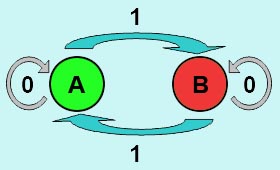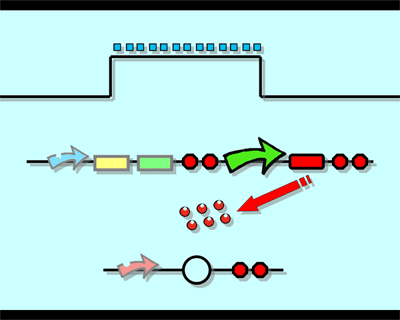Tianjin/FLIP-FLOP
From 2007.igem.org
Design"Flip-flop" is the common name given to two-state devices which offer basic memory for sequential logic operations. Flip-flops are widely used for digital data storage and transfer as well as in banks called "registers" for the storage of binary numerical data. Based on the conception of "Flip-flop" and synthetic biology, we designed the Genetically RS FLIP-FLOP whose output signal is regulated by additional input signal. Besides this, we modulate the performance of Genetically RS FLIP-FLOP to optimize our original design. 1.Introduction to the logic rules of our flip-flop
|
Modelingwe construct the model to simulate the behaver of the system.The GFP used in our project will not degradate in short time which makes the GFP fluorescence of experiment result not go down,but in the model we avoid this problem.
2.Model Result
|
Experiment |

